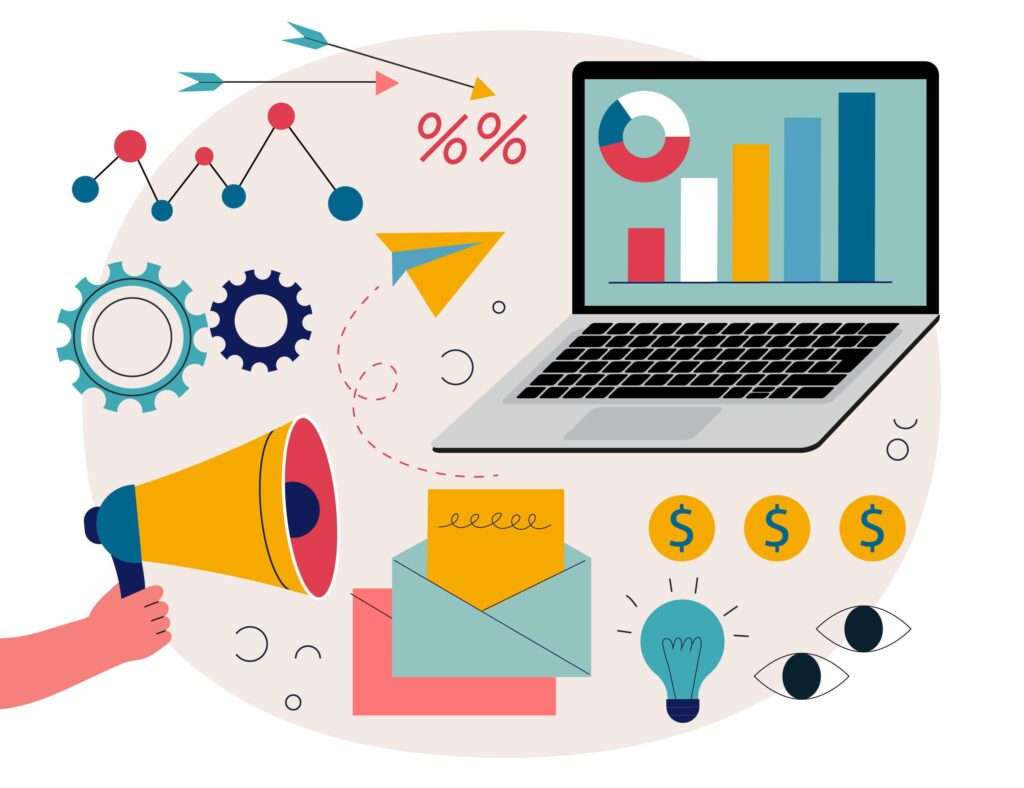
Digital marketing has become an indispensable aspect of any business’s growth strategy. With the rapid evolution of technology and consumer behavior, the digital landscape is continuously changing. To navigate this dynamic environment effectively, digital marketers rely on a plethora of marketing tools to streamline their processes, optimize their campaigns, and achieve desired results. In this article, we’ll explore the must-have tools for every digital marketer across various domains.
1. Introduction to Digital Marketing
In today’s digital age, having a strong online presence is crucial for businesses to succeed. Digital marketing encompasses various strategies aimed at reaching and engaging target audiences through digital channels such as search engines, social media, email, and websites. Utilizing the right tools can significantly enhance a marketer’s ability to execute these strategies effectively.
2. SEO Tools
Search Engine Optimization (SEO) is fundamental to improving a website’s visibility in search engine results. Digital marketers rely on a range of SEO tools to conduct keyword research, optimize on-page elements, and analyze backlink profiles. Tools like SEMrush, Ahrefs, and Moz provide valuable insights into competitor strategies and help identify opportunities for optimization.
3. Content Marketing Tools
Content marketing is essential for attracting and retaining audiences. Content creation and distribution tools such as Grammarly, Canva, and Buffer enable marketers to produce high-quality content and distribute it across various channels efficiently.
4. Social Media Marketing Tools
Social media platforms are powerful tools for engaging with audiences and driving traffic to websites. Social media management tools like Hootsuite and Sprout Social simplify the process of scheduling posts, monitoring conversations, and analyzing performance metrics.
5. Email Marketing Tools
Email marketing remains one of the most effective channels for nurturing leads and converting prospects into customers. Tools like Mailchimp, Constant Contact, and Sendinblue offer features for designing captivating email campaigns, segmenting audiences, and automating follow-up sequences.
6. Analytics Tools
Measuring the effectiveness of digital marketing efforts is essential for optimizing campaigns and maximizing ROI. Analytics tools such as Google Analytics and Adobe Analytics provide valuable insights into website traffic, user behavior, and conversion rates, enabling marketers to make data-driven decisions.
7. Project Management Tools
Effective collaboration and task management are crucial for ensuring smooth workflow processes. Project management tools like Asana, Trello, and Basecamp help teams organize tasks, track progress, and communicate effectively throughout various projects.
8. Graphic Design Tools
Visual content plays a significant role in capturing audience attention and conveying brand messages effectively. Graphic design tools like Adobe Creative Cloud, Canva, and Piktochart empower marketers to create stunning graphics, infographics, and visuals without the need for extensive design expertise.
9. CRM Tools
Building and nurturing relationships with customers is essential for long-term business success. Customer Relationship Management (CRM) platforms such as HubSpot, Salesforce, and Zoho CRM help marketers manage customer data, track interactions, and personalize communication to drive engagement and loyalty.
10. Automation Tools
Automating repetitive tasks can save time and improve efficiency in digital marketing processes. Marketing automation platforms like Marketo, HubSpot Automation, and ActiveCampaign enable marketers to automate email campaigns, lead nurturing workflows, and social media posting schedules.
11. Security Tools
Protecting sensitive data and ensuring website security are paramount concerns for digital marketers. Security tools such as Sucuri, Wordfence, and SSL certificates help safeguard websites from malware, hacking attempts, and other cybersecurity threats.
12. Budget Management Tools
Managing marketing budgets effectively is essential for achieving desired outcomes within allocated resources. Budget planning tools like QuickBooks, FreshBooks, and Expensify assist marketers in tracking expenses, creating budgets, and generating financial reports for analysis.
13. Competitor Analysis Tools
Understanding competitors’ strategies and market dynamics is critical for staying ahead in the digital landscape. Competitor analysis tools like SpyFu, SimilarWeb, and SEMrush provide insights into competitor keywords, traffic sources, and advertising strategies, enabling marketers to identify opportunities and threats.
14. Mobile Marketing Tools
With the increasing use of mobile devices, mobile marketing has become a vital component of digital marketing strategies. Mobile app analytics tools like App Annie, Firebase, and Mixpanel help marketers track app performance, user engagement, and retention metrics to optimize mobile marketing campaigns effectively.
15. Conclusion
In conclusion, digital marketing tools are indispensable for marketers seeking to navigate the complexities of the digital landscape successfully. From SEO and content marketing to social media management and analytics, leveraging the right tools can streamline processes, optimize campaigns, and drive meaningful results. By investing in a diverse toolkit tailored to specific business needs, digital marketers can stay ahead of the curve and achieve their marketing objectives efficiently.


